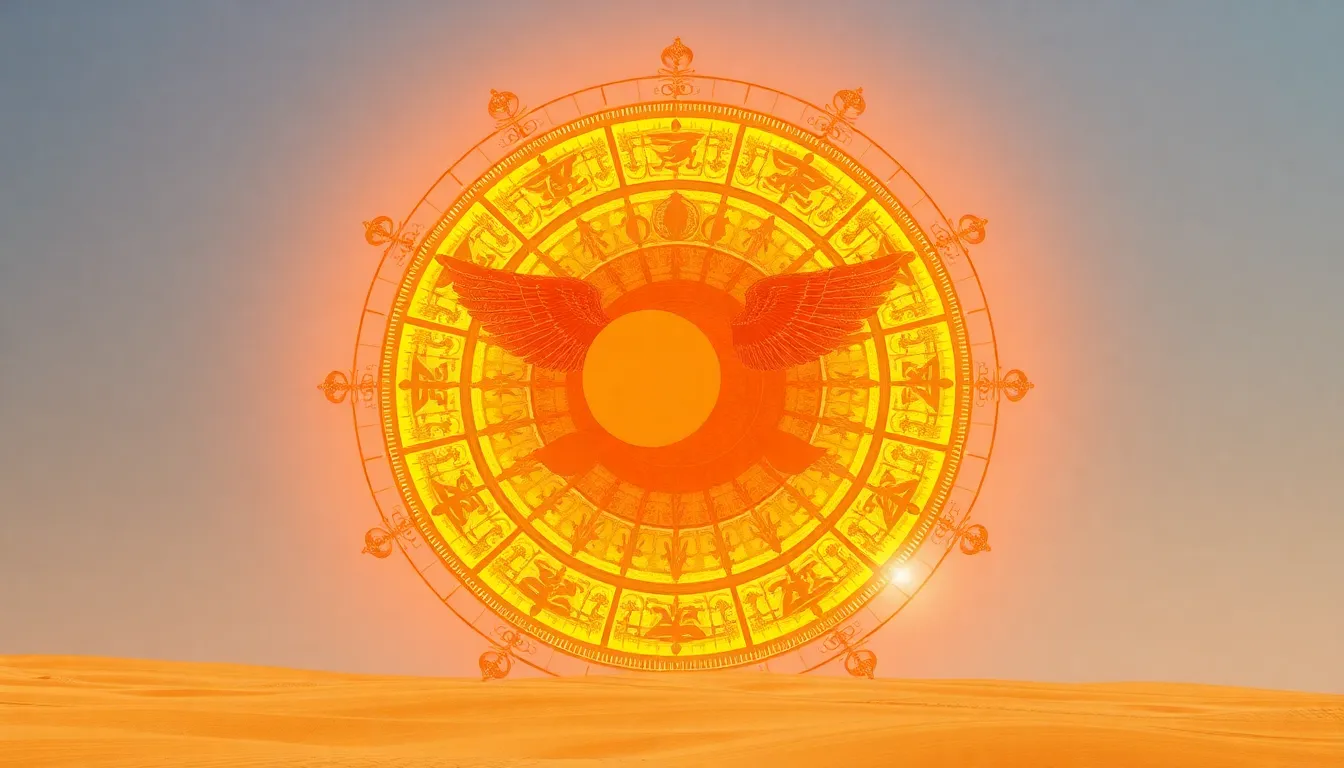The Connection Between the Sun and Egyptian Astrology
I. Introduction
The rich tapestry of Egyptian astrology offers a fascinating glimpse into the ancient beliefs and practices of one of history’s most iconic civilizations. At the heart of this astrological system lies the Sun, revered not only as a celestial body but also as a powerful symbol of life, fertility, and divinity. This article explores the deep-seated connection between the Sun and Egyptian astrology, shedding light on its significance in the cultural and spiritual landscapes of ancient Egypt.
II. Historical Context of Egyptian Astrology
Egyptian astrology has origins that date back to the early dynastic period, where it began as a blend of observational astronomy and religious practice. Ancient Egyptians meticulously observed celestial movements, particularly the Sun, Moon, and stars, which played crucial roles in their agricultural calendar and religious festivals.
Astrology was not merely a tool for predicting the future; it was deeply intertwined with the social fabric of ancient Egyptian society. It influenced decisions in governance, agriculture, and daily life.
- Origins: Egyptian astrology emerged from the need to understand celestial cycles.
- Role in Society: It provided guidance in agricultural practices, religious ceremonies, and royal decisions.
- Astronomy’s Influence: The Egyptians’ keen observations of the skies laid the groundwork for their astrological beliefs.
III. The Sun God Ra: A Central Figure
In Egyptian mythology, Ra is the Sun god and one of the most significant deities in the pantheon. He embodies the Sun’s life-giving properties and is often depicted as a falcon-headed man crowned with a solar disc.
Ra’s attributes and associations include:
- Creation: Ra was believed to be the creator of all life.
- Regeneration: Each sunset symbolized death, while the sunrise represented rebirth.
- Protection: Ra was often invoked for protection and guidance in the afterlife.
The Sun’s journey through the sky was a crucial aspect of Egyptian cosmology. Each day, it was believed that Ra traveled across the heavens in his solar boat, battling the serpent Apep, representing chaos and disorder.
IV. Zodiac Signs and the Sun’s Influence
The Egyptian zodiac consists of 12 signs, each associated with specific dates and characteristics linked to the Sun’s movements. This zodiac was unique compared to its Western counterpart, emphasizing the Sun’s significance in shaping personality traits.
The Sun signs in Egyptian astrology include:
- Horus: Represents leadership and protection.
- Thoth: Symbolizes wisdom and communication.
- Osiris: Associated with resurrection and transformation.
The characteristics attributed to each sign are thought to be influenced by the solar movements during the time of an individual’s birth, linking their identity to the Sun’s journey.
V. The Concept of Time and the Solar Calendar
The Sun played a pivotal role in the ancient Egyptians’ understanding of time. They developed a solar calendar consisting of 365 days, divided into 12 months of 30 days, plus an additional 5 days for festivals.
This calendar allowed them to predict seasonal changes and align agricultural activities with the cycles of the Sun. Key festivals and rituals were closely tied to solar events, such as:
- Wepet Renpet: The New Year festival marking the annual flooding of the Nile.
- Ra’s Birthday: Celebrations in honor of the Sun god.
- Solstice Festivals: Observances that celebrated the longest and shortest days of the year.
VI. The Sun and Personal Identity in Egyptian Astrology
The Sun’s influence in Egyptian astrology extends to personal identity and character traits. The Sun sign determined by one’s birth date is believed to shape an individual’s personality and life path.
Birth charts were essential in this practice, as they provided insights into the Sun’s position at the time of birth, thus revealing deeper meanings and influences. Unlike some other astrological systems, such as Western astrology, Egyptian astrology places a significant emphasis on the solar aspect of identity.
- Personality Traits: Each Sun sign is associated with specific characteristics, such as strength, creativity, or intuition.
- Birth Charts: Detailed charts allow for a more nuanced understanding of an individual’s solar influence.
- Comparative Systems: Egyptian astrology differs from Western systems, focusing more on solar attributes than on planetary movements.
VII. The Legacy of Solar Influence in Modern Astrology
The symbolism of the Sun continues to resonate in contemporary astrology. Many modern practitioners incorporate elements of Egyptian astrology into their readings, reflecting the enduring influence of these ancient beliefs.
The relevance of Egyptian astrology today can be seen in:
- Personal Growth: Individuals seek to understand their Sun sign to gain insights into their personality and life purpose.
- Spiritual Practices: Many modern spiritual practices draw from Egyptian myths and astrological concepts.
- Integration: The fusion of Egyptian astrology with other astrological frameworks enriches the overall understanding of personal destiny.
VIII. Conclusion
The Sun’s paramount importance in Egyptian astrology reflects the civilization’s deep reverence for celestial bodies and their influence on human affairs. From the worship of Ra to the development of a solar calendar, the ancient Egyptians understood the Sun as a guiding force in both the cosmos and personal identity.
The legacy of these beliefs endures, offering valuable insights into the connection between the Sun and personal destiny in our lives today. As we reflect on the ancient wisdom of Egyptian astrology, we recognize the continued relevance of these concepts in our quest for understanding ourselves and the universe around us.




